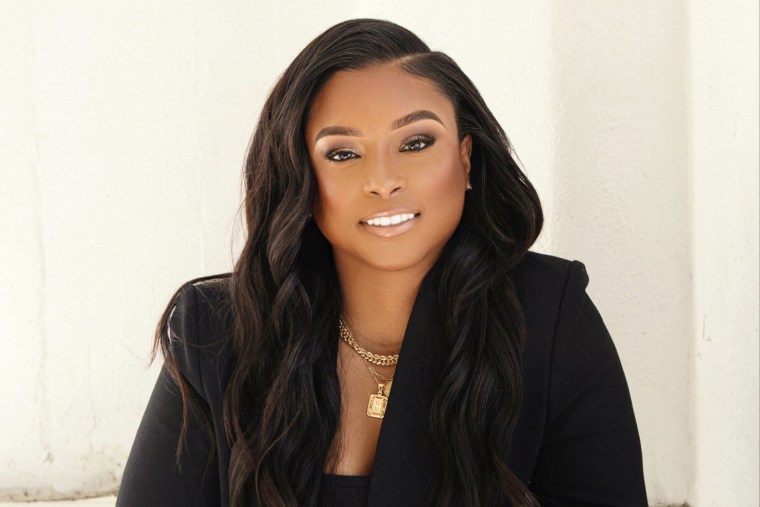First, I was still determining if I wanted to tell this story. I have written three bestselling books (“The Memo,” “Right Within,” and “You Are More Than Magic”) and shared so much of my career story with the world. The highs and lows. And how I am still healing from past workplace inequality. But this part of my story is more intimate. This story is about my body.
A couple of months ago, I was scheduled for my annual physical. At 40, I believe in being proactive on my health journey. This year, I received some news that I wasn't prepared for. My primary care physician explained to me that I have fibroids. Fibroids are benign tumors that can develop in the uterus. Statistically, 20 to 80 percent of women will develop fibroids by age 50. And in African-American women in the U.S., we are three times more likely to develop uterine fibroids than white women.
I assumed this visit would be pretty routine – I would get some updates on my cholesterol and blood work, and then be on my way to continuing to build my business. My doctor casually dropped the word hysterectomy.
The word hysterectomy rang so loud in my head that it sounded like a siren passing my old apartment in Harlem, New York.
I thought – WAIT – aren't I too young to decide this right now? What about children? I am not even married yet! I had all of these questions and wasn't sure how to answer them.
For the last eight years, I have been laser-focused on working with companies to make the workplace better than I found it as an author and workplace consultant. The day before this news, I was revamping my personal website and just turned in the first three chapters of my fourth book. I only just now thought about family planning seriously. I was overwhelmed.
Acceptance
What would having this surgery mean for my life, work and the pursuit of happiness? One of my coping mechanisms has always been music. I turned on a new song by artist ZIAH called “Drive With You” and did what most of us do when we want to find more information: go down the rabbit hole and comb through Tik Tok for content sharing information about fibroids.
I needed to start with the basics. I wanted to gather as much information as possible to feel more comfortable about my next decision.
Later that week, I scheduled an appointment with my therapist and spoke to close family and friends for support. I knew I didn't want to go through this process alone – I wanted my support system in place for such a huge decision. And even though my ladder felt like it shook at that moment, I still had enough control to prop it back up and redefine what success would look like for me.
I left the traditional workforce in 2019 to find my own version of success, so I know I can do it again with my family planning choices. My goals haven’t changed. I want my fourth book to be more impactful than the first three; I want to grow my consultancy practice and add more to my retirement account. This news didn't have to stop any of my goals!
Toni Cade Bambara once said, “The dream is real, my friends. The failure to realize it is the only unreality.” I accepted that I have choices and would make the best choice for MY future.
Since African-American women are more likely to develop fibroids, it was essential for me, as a Black woman, to seek out a Black woman gynecologist. During our appointment, my new doctor, now part of my support system, strongly suggested I consider a partial hysterectomy.
While electing to have the procedure for my diagnosis means I will no longer be able to have children naturally, I didn't let the word hysterectomy paralyze me or make me feel less than a woman.
A Mindset Shift
The doctor said my recovery time would be between six to eight weeks. As a small business owner, I felt a little anxiety creeping in, but immediately, I shifted my mindset! I could plan my surgery later in the year, during a slower time in my business, like the holidays.
I decided not to focus on what I felt I might be losing but on what I would be gaining. I reconditioned my thought pattern to an additional priority: my health. Without my health, I cannot run a successful business or write my next bestseller.
This is no longer about family planning but life planning.
I had a newfound appreciation for my womanhood, health journey and support system. Being a woman and climbing the ladder to success is not a one-size-fits-all model.
Redefining Success
July is Fibroid Awareness Month – the annual observance to help inform the public about uterine fibroids. I found terrific information through the Fibroid Foundation, and I even messaged them with gratitude for fighting for a cause that I didn't know would one day impact my life.
My family planning might look different in the future, but I am happy and at peace with my decision to move forward with the partial hysterectomy surgery. Our success as women is not a solo sport and we don’t have to be defined by status quo.
As we build our empires, let us continue fostering our relationships and prioritizing our health. And as for my future family planning, I have my wonderful god-children, nephews and French Bulldog – Boston – and this is my continued pursuit of happiness.



